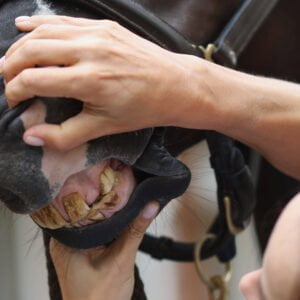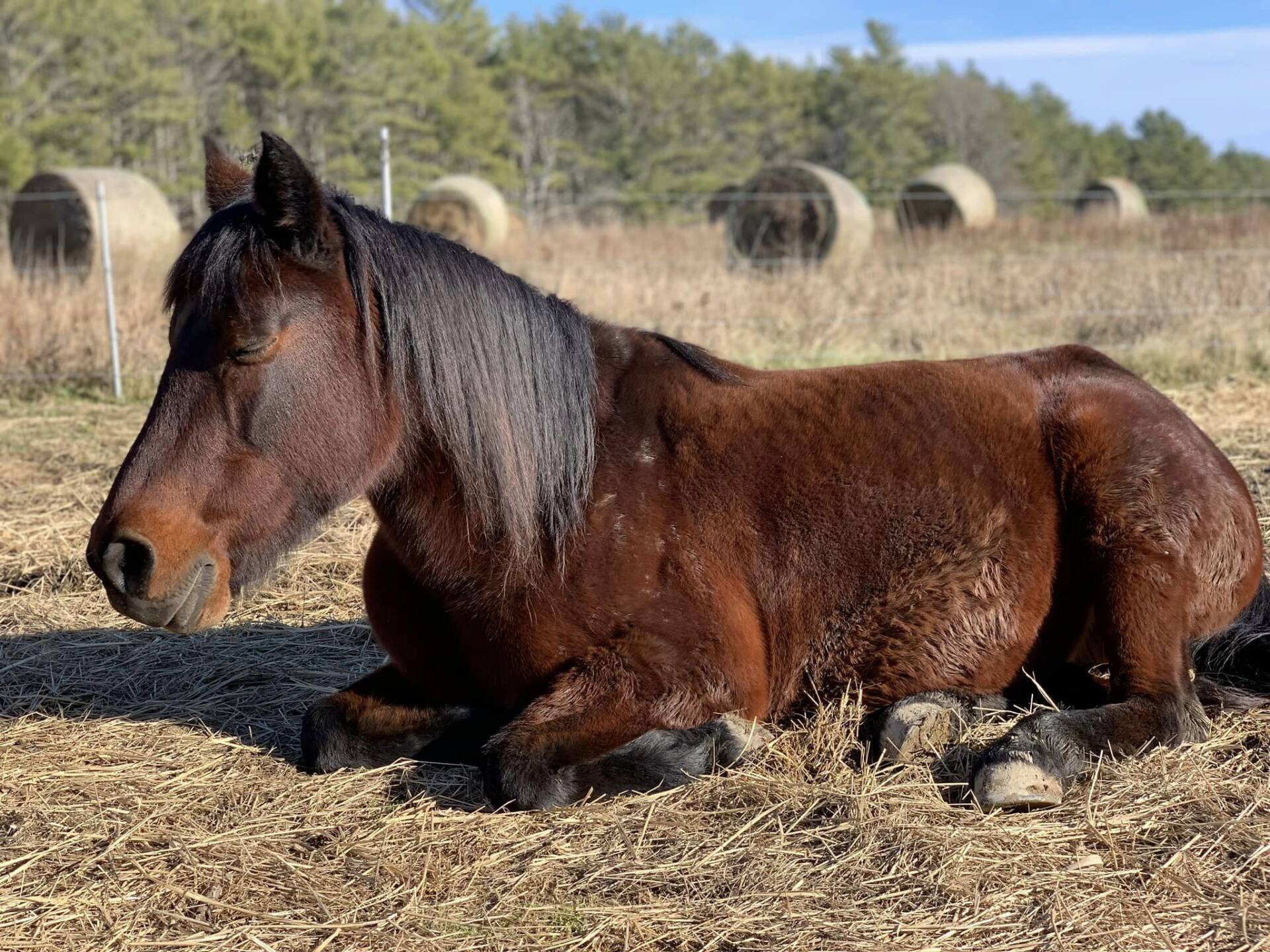Horses live longer and healthier lives than ever, with many reaching the ripe old age of twenty-five or even thirty years old. As horses age, their bodies change and become more susceptible to specific health conditions. One condition to monitor in senior horses is dental health. Here are some things to consider about dental health for your senior horse.
Signs of Poor Dental Health
It’s essential to be aware of the signs that may indicate poor dental health in your senior horse. These include difficulty eating or chewing hard food, dropping food from the mouth when eating (quidding), weight loss, bad breath, and lower lip drooping. It’s not uncommon for horses to grind their teeth or display behavioral issues such as biting, bucking, or fighting rein contact due to discomfort from poor dental health. If you notice these signs in your senior horse, it’s essential to seek veterinary advice.
Common Dental Issues
As horse teeth erupt and wear down, these common dental issues become more prevalent:
Lost Teeth
When a horse loses a tooth, the opposing tooth cannot be worn down by its natural chewing motion. The opposing tooth can catch in the open space and prevent the horse from chewing.
Infection
Loose teeth, spaces between teeth, and fractured teeth can cause infections. These infections are more common in horses with suppressed immune systems, like those with Cushing’s disease.
Wave Mouth
Wave mouth appears when the teeth wear unevenly, resulting in short and tall teeth. A severe wave mouth can make it difficult for a horse to chew, and its jaw can lock up. Horses with wave mouths may need changes to their feed management because of their inability to chew food properly. Soaking hay, feeding nutrient-dense grain to increase feed efficiency, and feeding soft treats (like Dimples!) can help improve their nutrition. Dimples® Horse Treats are soft enough for senior horses and horses suffering from wave mouths to eat comfortably.
Sharp points and hooks
Sharp points can occur in horses of any age, but senior horses are susceptible to having very tall hooks because the jaws aren’t matching up correctly. Hooks can become long and painful without proper dental care.
Incisor issues
Incisors can become mismatched, broken, or lost; this may not significantly impact a horse on a strict hay diet. However, if your horse grazes, incisor issues can make it very difficult for them to eat grass.
Treatments For Poor Dental Health
 Your veterinarian will likely recommend that your senior horse undergo a comprehensive oral exam under sedation. This process involves examining each tooth individually and taking x-rays. This will help to identify any hidden problems, such as cavities or abscesses, that may be causing pain or disrupting the proper function of the teeth. Treatment options can range from simple teeth floating (filing down sharp edges) to extractions for broken or diseased teeth. After treatment is complete, your vet may recommend regular check-ups every six months to monitor your senior horse’s dental health progress and ensure no new problems have arisen.
Your veterinarian will likely recommend that your senior horse undergo a comprehensive oral exam under sedation. This process involves examining each tooth individually and taking x-rays. This will help to identify any hidden problems, such as cavities or abscesses, that may be causing pain or disrupting the proper function of the teeth. Treatment options can range from simple teeth floating (filing down sharp edges) to extractions for broken or diseased teeth. After treatment is complete, your vet may recommend regular check-ups every six months to monitor your senior horse’s dental health progress and ensure no new problems have arisen.
Why is senior horse dental health important?
It’s vital for all horse owners—especially those who own seniors—to keep an eye out for potential problems with their horses’ dental health to help maintain their overall well-being and quality of life. Regular check-ups with a qualified veterinarian are crucial to maintaining good dental health in older horses and catching any potential issues early before they become severe or painful for your beloved equine companion!

